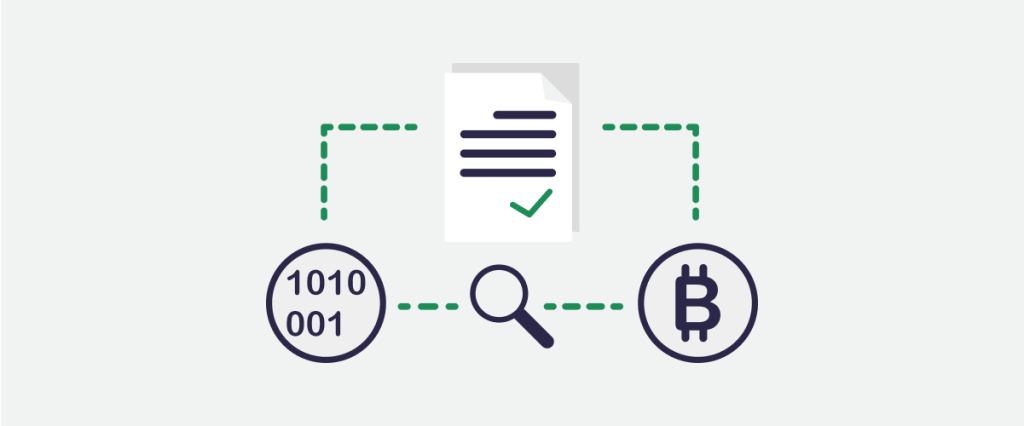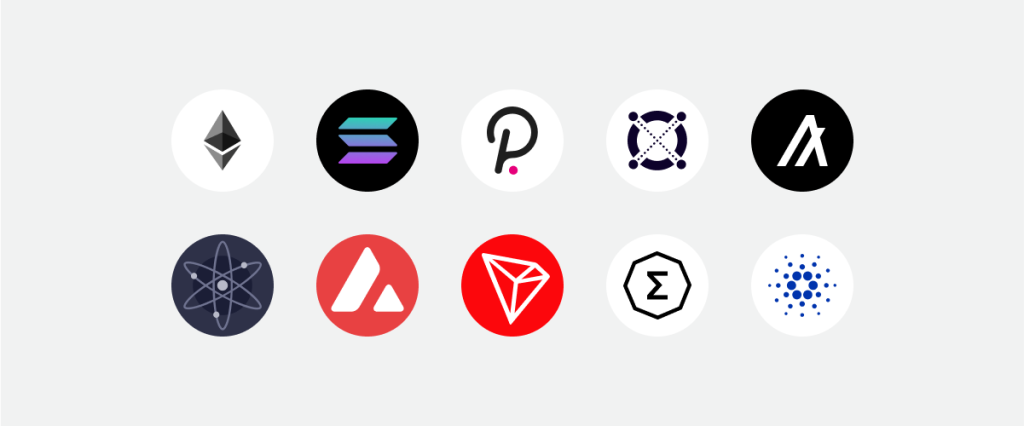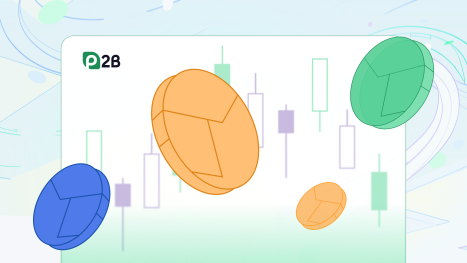What is a Cryptocurrency Smart Contract?

The blockchain technology introduction led to Bitcoin and other cryptocurrencies’ expansion. However, digital currencies aren’t the only advantage of such an innovation. Everyone can greatly benefit by operating smart contracts. What is a smart contract cryptocurrency? Let’s figure it out together.
What is a Smart Contract?
Smart contract vs cryptocurrency are typically associated with each other. It’s known as an app that operates on a blockchain. It functions as a digital arrangement backed by a body of regulations. These rules are determined by computer code that’s copied and processed by all network nodes.
Smart contracts are vital to guarantee the functioning of decentralized projects (DeFi, DApps, etc.), as these are systems without the regulatory authorities’ assets. In such a case, even a smart contract without cryptocurrency is used to confirm that the stipulated arrangements are followed in the proper algorithmic sequence.
How Smart Contracts work

As you admit what a smart contract in cryptocurrency is, its working process is also easy. The smart contract is a part of the blockchain code and functions directly within the network. For developers, the idea of creating blockchain cryptocurrency smart contract with JavaScript moves the goalposts and offers developers a better chance of getting into the blockchain space. The conditions are written not with a pen on paper but with mathematical algorithms and programming language usage.
The transaction will be implemented only if all conditions have been undertaken, and users will receive the stipulated result. After the completion of the algorithm and the correct procedure, smart contracts will become part of the registry, getting into the blockchain itself. The basic principle of the smart contract cryptocurrency is the complete undertaking of a conditional algorithm of sequential actions.
Here an immediate question arises: how does a smart contract transaction differ from the usual cryptocurrency transfer? Any smart contract cryptocurrency undertaking appears in a blockchain transaction, and it can be started when initiated by a personal account (or another cryptocurrency smart contract).
Why are Smart Contracts important?
Smart contracts have been distributed actively throughout the world and let you optimize and speed up numerous routine processes and decrease the intermediary party involvement, which declines the associated costs significantly.
Furthermore, smart contract technology usage makes it possible to eliminate errors that were possible because of the human aspect. Therefore, digital contracts have recently begun to be applied in diverse fields of activity, in addition to smart contracts in cryptocurrency.
Smart Contract Cryptocurrency list

If you’re interested in crypto, you’re likely to have already thought: where can you buy a cryptocurrency in a smart contract? You know that blockchains employ smart contracts to facilitate transactions and automate processes. We mentioned below the top 10 smart contract cryptocurrency platforms to be monitored. Of course, smart contracts can differ a little, but we’re certain this list of smart contract cryptocurrency is the most useful one.
- Ethereum (ETH) is supposed to be the best smart contract cryptocurrency, representing itself as a programmable blockchain. It’s the first cryptocurrency multiple features smart contract. It powers the plurality of decentralized apps, approximately 80% of DeFi apps in the world.
- We’ve placed Solana (SOL) on our smart contract cryptocurrency list. Besides, it’s cheap, and it’s currently the fastest crypto in the blockchain space, processing 50,000 transactions per second (TPS).
- Another smart contract platform cryptocurrency is Polkadot (DOT). It’s known for compatibility with other blockchain platforms. This feature allows developers to create apps that, for example, use Ethereum and Bitcoin.
- The next one is Ergo (ERG). This smart contract cryptocurrency platform doesn’t collect transaction fees. Also, thanks to its ErgoScript coding language, it can handle more complicated contracts that the DeFi industry might be interested in.
- Algorand (ALGO) is a cheap smart contract cryptocurrency. It pledges low fees, expandability, and speed without sacrificing protection. Its peculiarity is the usage of ‘Pure-proof-of-stake’ where the blockchain is maintained by computers solving complex mathematical problems to generate new blocks and confirm transactions.
- Another top smart contract cryptocurrency in terms of market value is Cardano (ADA). Here, the blockchain is being built in five phases to achieve its goal of turning the network into a decentralized app development platform with a multi-asset ledger and supportable smart contracts in cryptocurrency.
- Avalanche (AVAX) is also among the cryptocurrency smart contract leaders. Thanks to its native token features and several consensus mechanisms, the Avalanche network calls itself ‘the fastest smart contract platform in the blockchain industry’.
- Cosmos (ATOM) is another cryptocurrency smart contract generator. It’s an ecosystem of networks and implements that aims to supply interoperability. Its primary chain is the Cosmos Hub, which acts as a principal ledger for interoperable blockchains called zones.
- Next among smart contract examples in cryptocurrency is Elrond (EGLD). It’s a sharding blockchain platform using the Secure Proof-of-Stake (SPoS) consensus algorithm. This blockchain can be divided into several parts or shards.
- A blockchain-based operating system TRON (TRX) is also among all smart contract cryptocurrency. It aims to ensure this technology fits for daily use. TRON claims that its network is designed for 2,000 TPS.
Cryptocurrency Smart Contract Advantages and Disadvantages
As with any technology, smart contracts have both dos and don’ts. Let’s talk about the pros first:
- saving time and resources;
- lower costs, as there is no need for the services of intermediaries;
- additional security from the blockchain usage;
- faster verification of contract performance conditions.
These pros are really significant, but the cons are also noteworthy:
- there may be errors and vulnerabilities in the software code of the smart contract cryptocurrency;
- difficulty in building a coding algorithm, as its necessary to predict all possible options for the development of events;
- the system perceives the contract terms with precision, without considering account force majeure.
The Future of Smart Contracts

Crypto market regulation and technological innovation are the two most influential risks that could affect the success of smart contract platforms. Increased regulation is gaining momentum in the US, which could affect DeFi and the entire crypto market.
The smart contract blockchain cryptocurrency is a promising technology and a tool for creating new solutions which undoubtedly will greatly affect our lives. And in a few years, we’ll take them for granted.
Final Thoughts
One final thought is that smart contracts have affected the planet of cryptocurrencies and have revolutionized the blockchain space for sure. While ultimate users may not engage directly with smart contracts, they’re likely to be employed in a vast range of apps in the future, from financial services to providing chain management.



